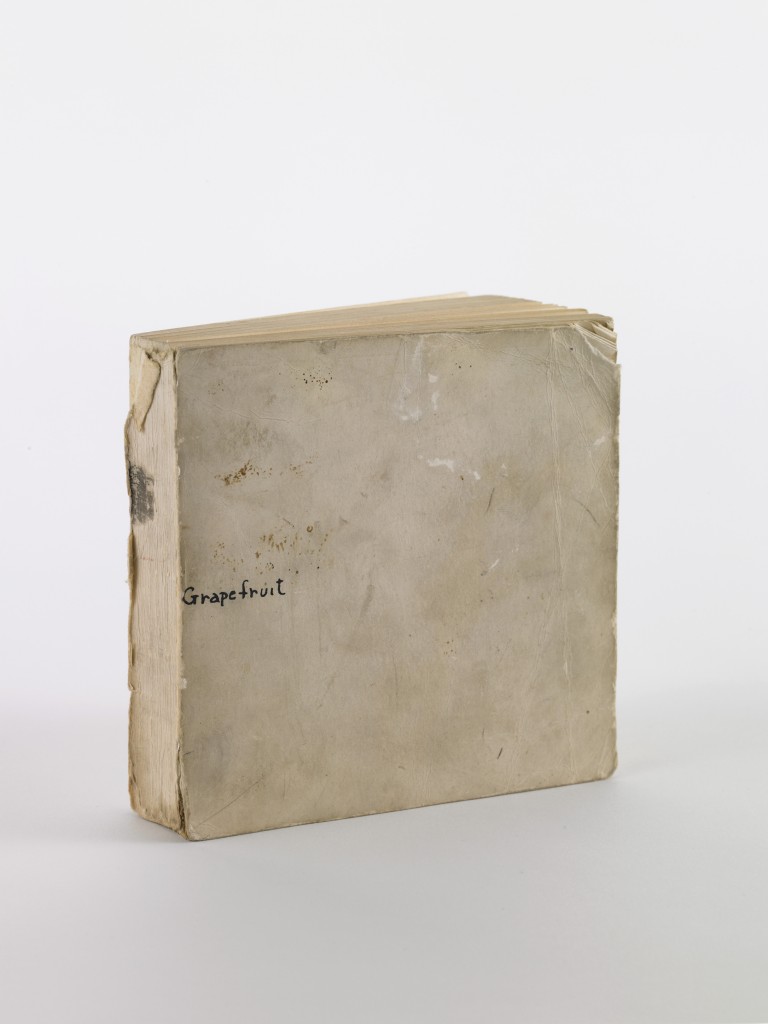YOKO ONO
GRAPEFRIUT (1964)
A series of performance instructions, reprint
A series of performance instructions, intended for the reader to act on; reprinted from the book Grapefruit (not translated into Polish). The first edition, in 1964, contained over a hundred and fifty simple instructions for scripted activities. The collection is one of the best-known works of conceptual art of the 1960s. It was Grapefruit that first attracted John Lennon to Yoko Ono. The book was named after the hybrid fruit – half orange, half lemon – which the artist thought an interesting metaphor for her experimental set of instructions, which have similarities with the activities of the art group Fluxus. In her art, Yoko Ono employs everyday activities and simple, mundane objects.

Grapefruit, Wunternaum Press, Tokyo, 1964, Photo by David Behl, © Yoko Ono
Yoko Ono (b. 1933) is a Japanese conceptual and performance artist, vocalist and composer, film-maker, peace activist and feminist, widow of the Beatle John Lennon. She lives and works in New York. In the 1960s and 70s, inspired by neo-dada and especially by John Cage, the leading 20th century pioneer of avant-garde music, and sometimes collaborating with Fluxus, Ono produced conceptual art and performances – often notorious at the time. One iconic example is her 1964 happening Cut Piece (Tokyo): members of the audience were asked to come and cut away pieces of the clothes draped on the artist until she was naked. As an experimental film-maker, Yoko Ono became particularly renowned for her 1966 Fluxus film known as Bottoms, which showed close-ups of human buttocks. With John Lennon, Ono collaborated on albums of experimental music and after he was killed, she continued to produce her own work. Together, in 1969 they wrote Imagine, the most successful and critically acclaimed piece in Lennon’s career and one of the top 100 most-performed songs of the 20th century. Starting with her Bed-ins for Peace against the Vietnam War in 1969, performed with John Lennon, Yoko Ono has all her life been a dedicated peace activist. Yoko Ono received a Golden Lion Award for lifetime achievement from the Venice Biennale in 2009.
Project Radical Languages subsidized by the Ministry of Culture and the National Heritage,
Flemish Representation at the Belgian Embassy and the Mondriaan Fonds.
Partner: Barka Alrina, Bęc Zmiana Foundation.
Media patronage: Program 2 Polskiego Radia, TVP Kultura, TVP Kraków, Radio Kraków, Gazeta Wyborcza, Karnet, O.pl, Cracow-life.com, Purpose.com.pl, E-splot.

